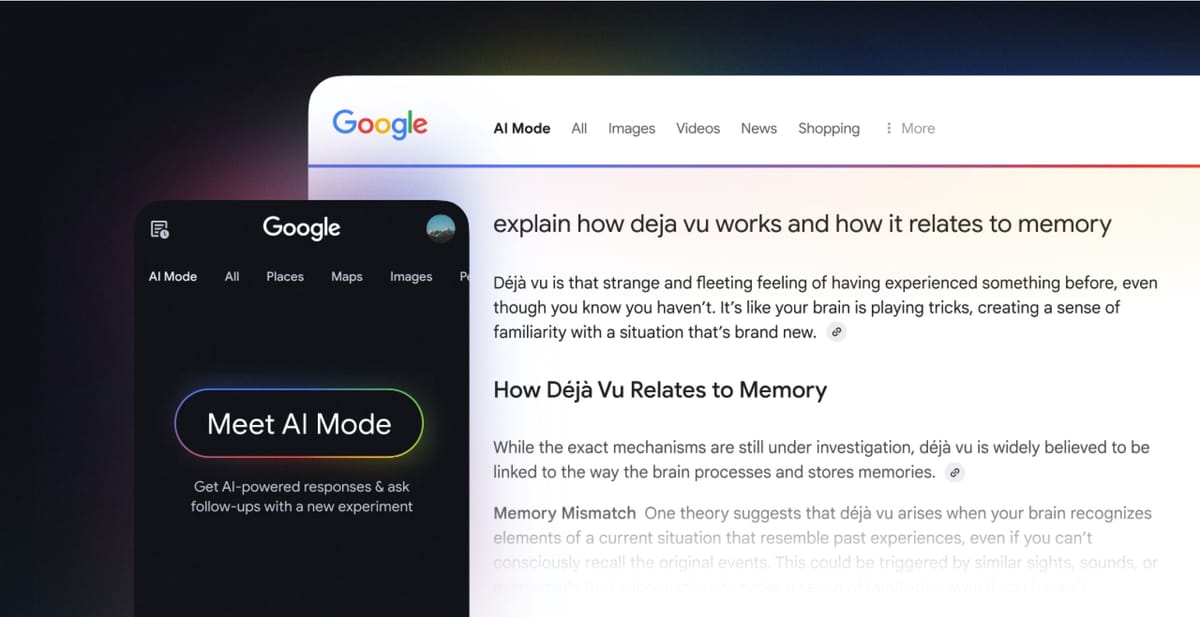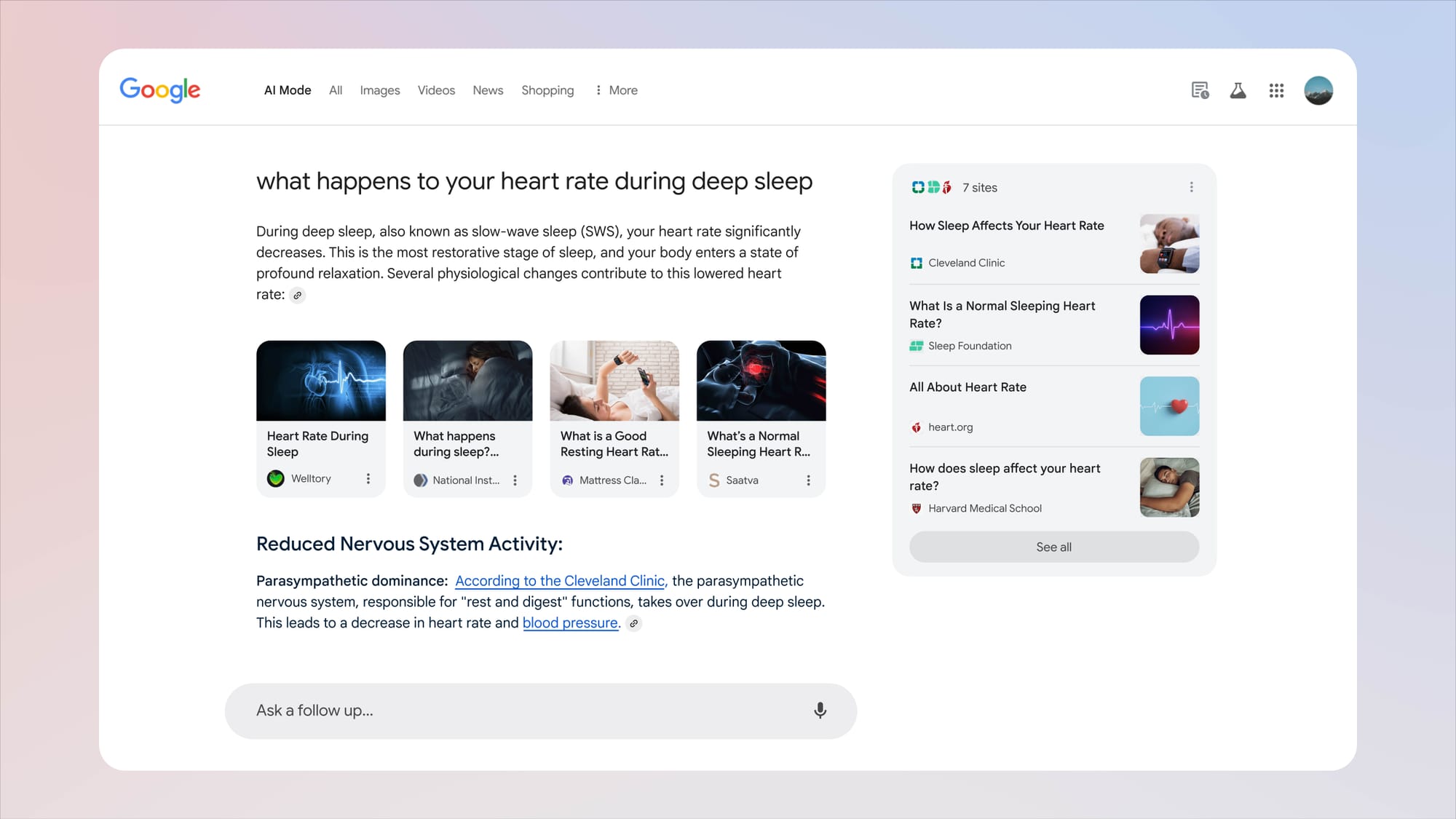
Google Search is evolving again, this time with “AI Mode,” a new experimental feature that enhances the capabilities of AI Overviews. Announced today, AI Mode is designed to tackle more complex questions, allowing users to ask multi-step, nuanced queries that would have previously required multiple searches.
Key Points:
- AI Mode Expands AI Overviews – Uses Gemini 2.0 to enhance complex queries with deeper reasoning and comparisons.
- More Nuanced Search – Handles multi-step questions and allows for follow-ups with real-time web data.
- Limited Rollout – Available first to Google One AI Premium subscribers via Google Labs.
- Focus on Quality & Freshness – AI responses leverage Google’s ranking systems and knowledge graphs to ensure accuracy.

Powered by a specialized version of Gemini 2.0, AI Mode integrates advanced reasoning and multimodal capabilities, enabling deeper exploration, comparisons, and follow-up interactions. For example, a user can compare the sleep tracking features of smart rings, smartwatches, and tracking mats in a single search, with AI Mode breaking down the differences and surfacing key insights. Users can then refine their search further by asking follow-up questions, such as how heart rate changes during deep sleep.
AI Mode builds on the innovations Google first introduced with AI Overviews. It combines Google’s extensive web indexing with real-time data from the Knowledge Graph and other sources, ensuring that responses are not only AI-generated but also backed by high-quality, up-to-date web content. Google describes this approach as a “query fan-out” technique, which issues multiple related searches across different subtopics and compiles them into a streamlined, easy-to-understand response.
Google says that while AI-powered responses will be prioritized, traditional search results will still be shown in cases where the system lacks confidence in the AI-generated answer’s accuracy.
The feature is currently in an early testing phase, with a limited rollout to Google One AI Premium subscribers through Google Labs. And, as with any early-stage AI product, there will be limitations and you should definitely expect some bugs.
There's also the challenge of maintaining objectivity. Google says that while they aim for AI responses to present information objectively based on what's available on the web, "it's possible that some responses may unintentionally appear to take on a persona or reflect a particular opinion."
The careful rollout strategy reflects Google's awareness of these challenges. The company has indicated they're already working on future improvements, including more visual responses with images and video, richer formatting, and new ways to connect users with helpful web content.
For content creators and publishers, Google emphasizes that helping people discover web content remains central to their approach. The company suggests that AI Mode's deep information retrieval capabilities will actually help users better express what they're looking for, potentially connecting them more effectively with relevant web content in various formats.
Google is also expanding access to its existing AI Overviews feature. The company has launched Gemini 2.0 for AI Overviews in the U.S., initially focusing on coding, advanced math, and multimodal queries. Additionally, teens can now use AI Overviews, and users no longer need to sign in to access the feature.

